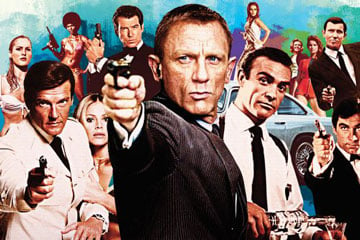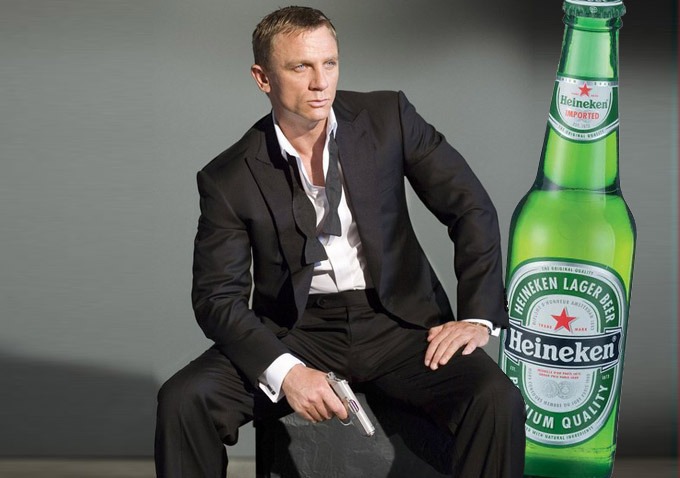*Positioning
Positioning James Bond, Even He Has to Work Hard at It

With Skyfall, the positioning of James Bond is once again being sharpened. He doesn’t drink a ‘Shaken – Not stirred’ Martini, but a Dutch beer, and as we saw in ‘Casino Royale,’ poker is his favorite game, no longer baccarat. But are these aspects of the same 007, or have we as the audience forced the filmmaker to reposition the world’s most famous secret agent? But perhaps most importantly is the question of what we ourselves can learn from this change!
In the 23rd Bond film, Bond’s loyalty to his equally iconic boss M is put to the test, and it seems to be the most successful [read: highest-grossing] film in the series. It is Daniel Craig’s third film as Bond, and in an interview, he says that it almost didn’t happen. After the success of Casino Royale, Quantum of Solace was a big letdown; the production fell smack in the middle of the big writer’s strike. It was only after reading the script of Skyfall that Craig decided to participate. The producers could also continue with the new positioning, which caused great dissatisfaction among old-school Bond fans. About Skyfall, Craig says: “I feel old, depressed, and alcoholic in Skyfall, in short: a very different 007.”
When the first Bond came out, the world was tense due to the Cold War. It was a world of intrigue, spy networks, and secretly built weapon installations. Bond was a product of his time; tough, cynical, and a real man’s man. But as the world changed, Bond had to keep up with the times; the villains symbolized which part of the world gained more power. But Bond always remained the aloof, English gentleman. With Daniel Craig, the producers took a drastically different path; Bond suddenly showed emotions, fight scenes became rougher, and the womanizing sexist disappeared.
And with success! Where Bond seemed to be sinking under competition from, for example, the Bourne trilogy, he is now back on top. He even seems to be setting records!
From the successful positioning of James Bond over the years, we can at least deduce that positioning does not represent a static situation. The positioning reflects how your organization deals with the challenges of the market, and it must be continuously refined. A second point is that positioning should not be relevant from your perspective, but from your target audience’s perspective! Just like with James Bond, your target audience must be convinced that it is your organization that can help them defeat the dangers threatening their world.
